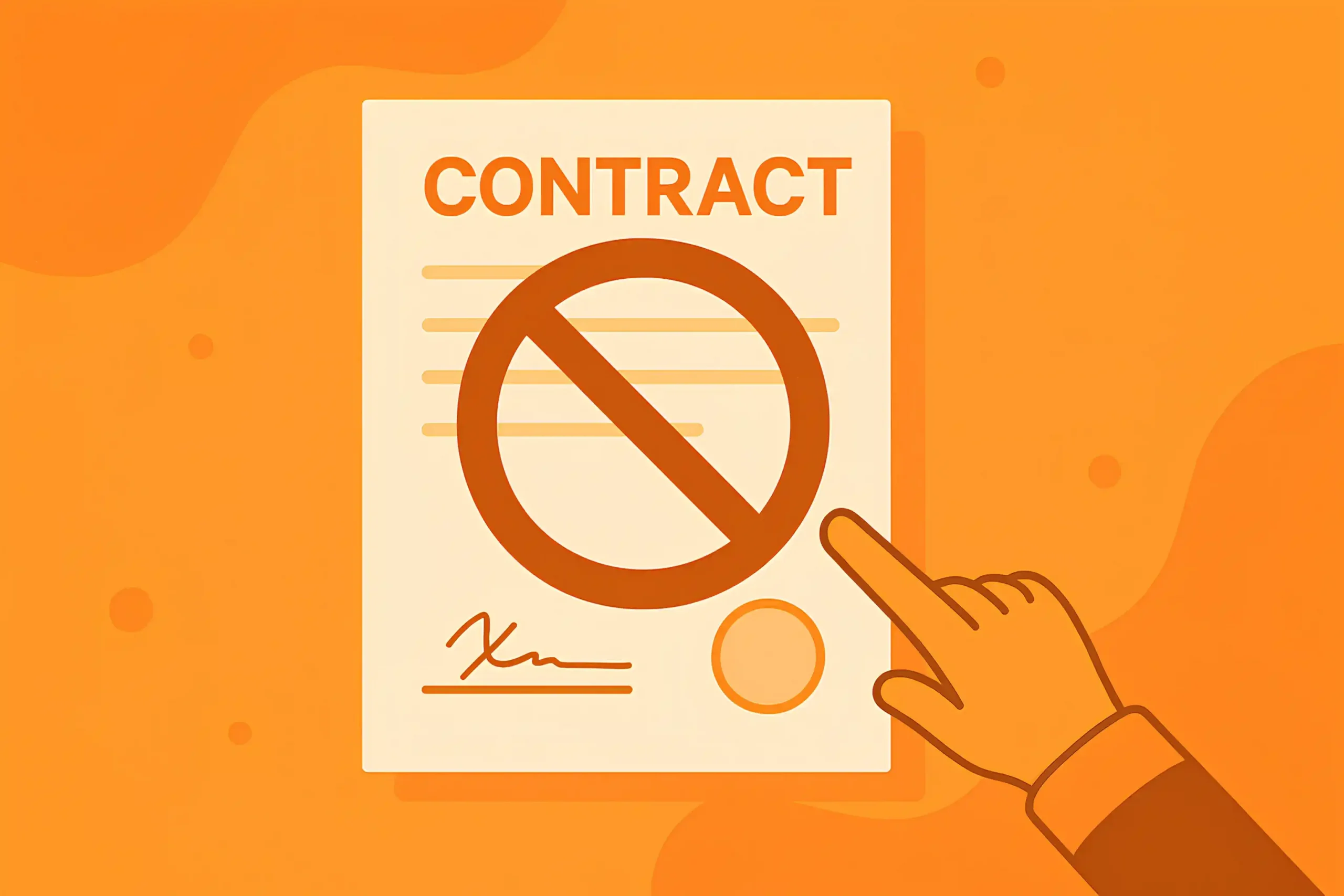Updated August 16, 2025
15 Tips to Hire an SEO Agency: Red Flags, and Pro Questions to Ask
The market is flooded with endless promises of “top rankings” and “guaranteed results,” and it’s easy to get swept up by smooth-talking salespeople or good-looking presentations. I’ve been at the heart of the SEO world for years, both as a strategist and as someone who has built an agency from the ground up.
Along the way, I’ve had my fair share of lessons; both from working with clients and from losing potential clients to competitors. Some of those losses were because of missteps on my end, and some because clients fell for promises that sounded good but led to disaster.
So, if you’re serious about hiring an SEO agency that delivers real results, let’s dive in, you’re about to save yourself a lot of time, money, and headaches.
15 Expert Tips to Vet SEO Agencies
So many promises, so much jargon, and you can’t help but wonder; are they just in it for the paycheck, or will they deliver results? Don’t get me wrong. There are incredible SEO agencies out there; teams that really care about your success. But finding them takes more than just a quick Google search or a scroll through LinkedIn testimonials.
That’s why I’ve put together this guide: 15 expert tips to help you vet SEO agencies like a pro. So grab a coffee, settle in, and let’s talk about how to protect your business and find a partner who’s truly invested in your success.

Verify Their SEO Experience
I know that most of us don’t have time to dig deep to assess the reputation of an SEO agency. Instead, many clients make the mistake of relying only on superficial indicators, such as the logos of well-known brands displayed on the agency’s website. Of course, those logos can be impressive, but they don’t always provide the full picture.
Maybe you’re thinking, “How do I even start verifying their experience? It’s not like I’m an SEO expert.” That’s okay. Let me walk you through a better way.
The simplest, no-nonsense step is to ask them for SEO case studies. Don’t overthink it; just ask. This isn’t a strange or difficult request. Any reputable agency worth its salt will have case studies ready to share.
Review them carefully.
Here’s what to look for:
🚀 Proof of Success: Do they back up their claims with screenshots? Are there images from Google Search Console or Google Analytics showing growth in clicks, impressions, or conversions?
When you review these materials, think critically. Does it all seem too good to be true? Do they avoid specifics? The devil’s in the details, my friend.
Next, take it up a notch. Ask to hop on a video call and have them walk you through a specific project. Pick a case study they’ve shared and ask them to elaborate on it. What was the client’s problem? What steps did they take to fix it? How long did it take to see results?
While they’re talking, pay attention. Do their explanations match the case study they provided? Or do things suddenly sound… inconsistent? If they’re as good as they claim, their words and the proof they’ve shared will align seamlessly. If not? Well, that’s your red flag waving.
Remember, anyone can provide some numbers on a website or paste logos into a portfolio. It’s easy to say, “We worked with this big-name brand.” But when you delve deeper, when you look at how they track, measure, and prove success, you’ll separate the real SEO experts from the pretenders.
So, don’t stop at first impressions. Ask for case studies, dig into the data, and have those conversations. Trust me, the right agency will be happy to show off their work.
When they do, you’ll know you’ve found a partner who doesn’t just promise results but can deliver them.
Partner with an SEO agency that lives and breathes SEO, not with a digital marketing agency that provides everything from Facebook advertising, to email marketing and other services.
Verify Their Online Reviews
The next reliable way to evaluate an SEO agency is to dive into their online reviews. Most agencies proudly display testimonials right on their homepage or a dedicated section. Often, these testimonials are clickable, leading you to platforms where the reviews were originally posted.
For instance, if you see a testimonial linked to Clutch.co or Google Business Porfile, you can visit those platforms to get a broader picture of client feedback. You can also perform a quick Google search by typing the agency’s domain name + reviews, which will show you the top review platforms where their clients have shared their experiences.
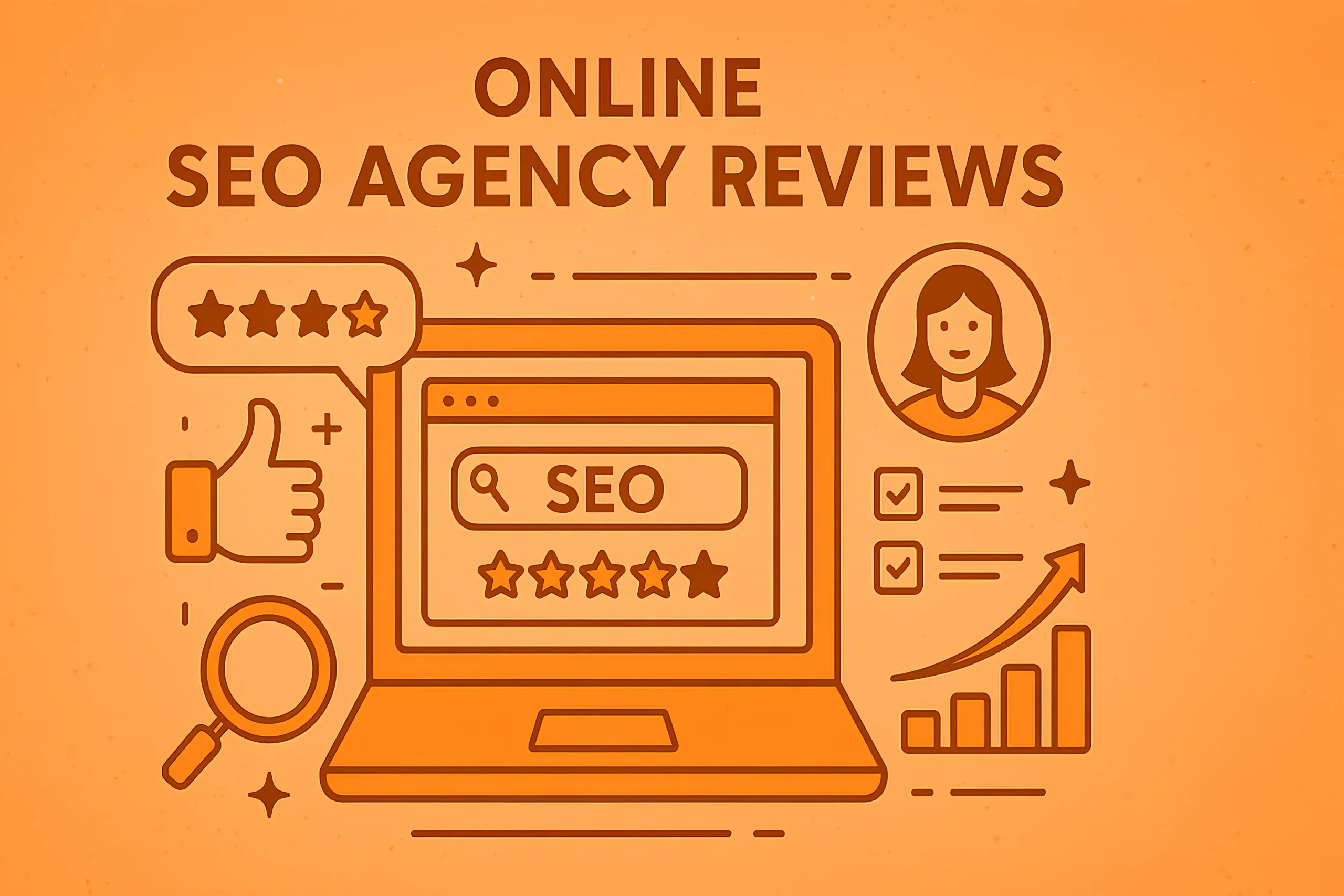
Sure, you’ll find reviews on Google Business Profile, which is great for local SEO agencies. But if you want more nuanced feedback, you need to look at directories like Clutch.co or DesignRush.com.
Personally, I recommend Clutch.co because it has a strict process for verifying reviews. They don’t just accept anything you throw at them; they contact actual clients for interviews, confirm the legitimacy of the relationship, and ensure the feedback is real and honest.
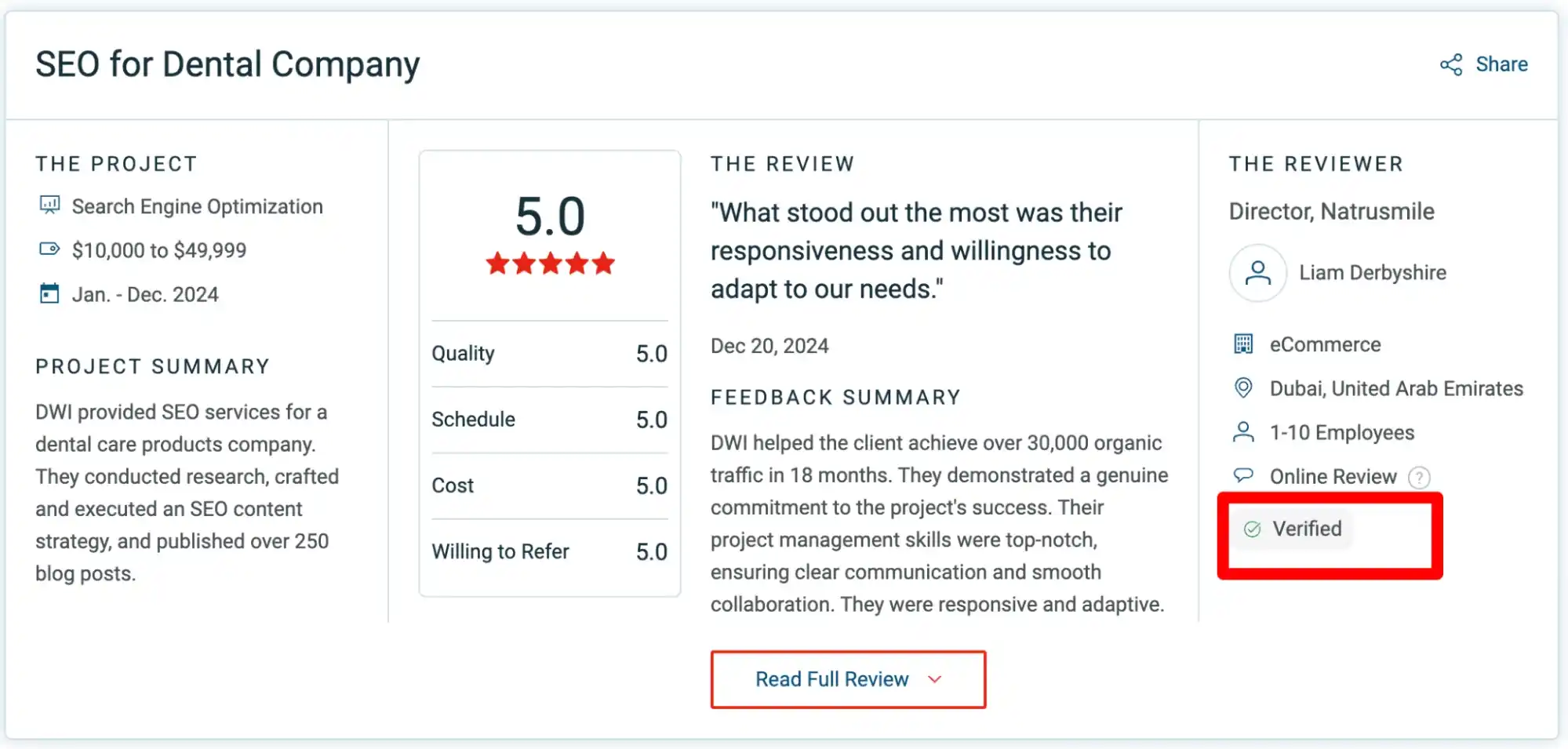
But what if the agency isn’t listed on Clutch or similar directories? Don’t worry, it doesn’t necessarily mean they’re not legitimate. Many reputable SEO agencies find their clients through platforms like Upwork, and it’s completely normal for them to rely on their Upwork reviews to showcase their expertise.
In fact, reviews on platforms like Upwork can sometimes be even more telling because they’re tied to actual project outcomes, timelines, and budgets.
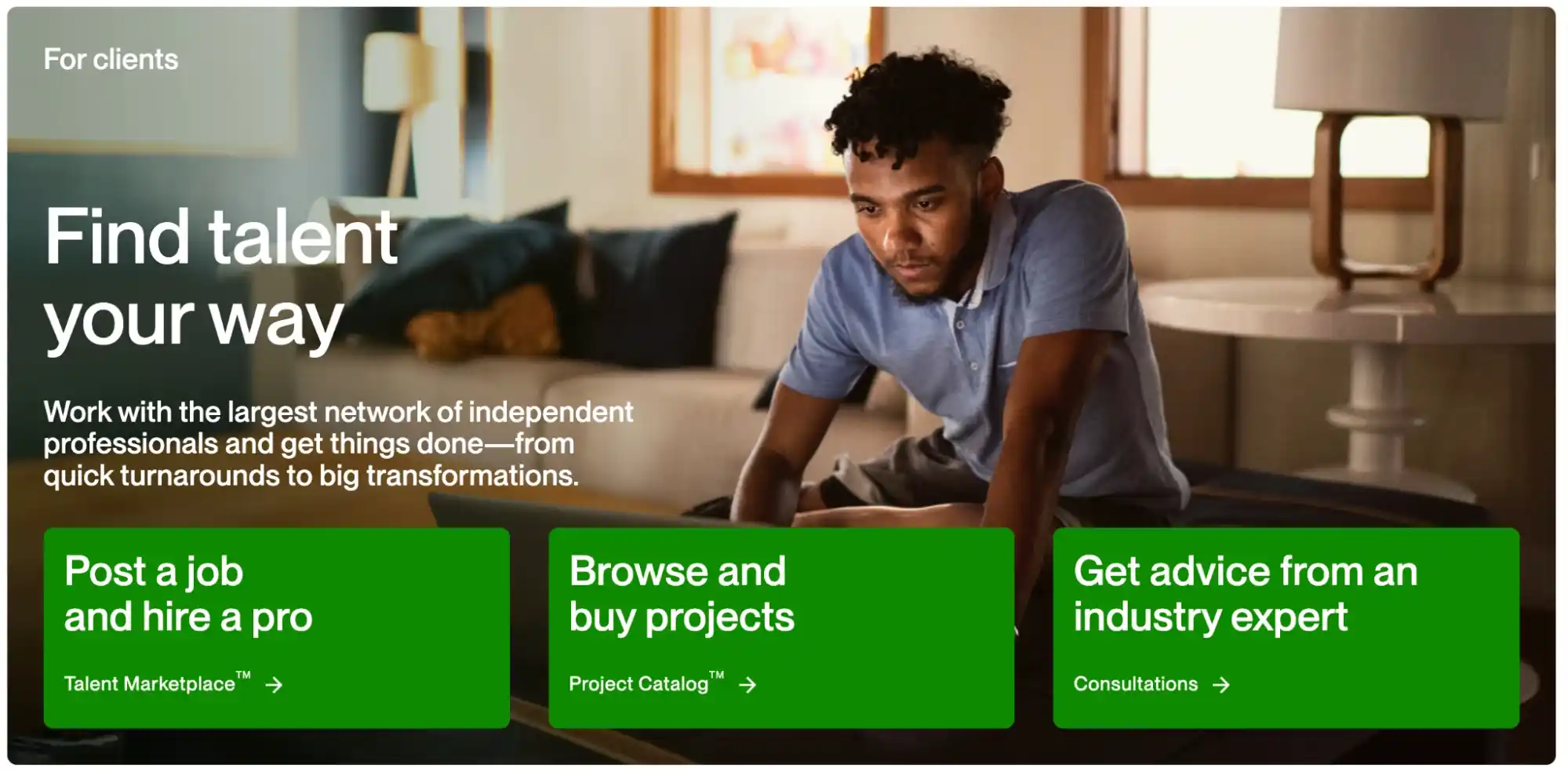
Reviews are your way of cutting through the sales pitches and getting insights into the real deal. Whether it’s on Google, Clutch, or even Upwork, take the time to read through them carefully.
Ask for References From the Past Clients
If you’re ready to hear real stories, getting opinions from previous clients is one of the best ways to choose an SEO agency. When you ask an agency for references, pay attention to their reaction.
Do they eagerly share names, or do they fumble and say something unclear about “confidentiality”? Now, don’t get me wrong, some industries do require discretion.
But a confident agency will find a way to connect you with someone who can vouch for them. It could be a written testimonial, a LinkedIn recommendation, or even better, a quick call with a past or current client.
Of course, not every client is going to sing their praises. Some projects hit unexpected challenges; timelines stretched longer than planned, results didn’t meet initial expectations, or strategies had to adjust along the way.
That’s not necessarily a red flag. What is a red flag is when the agency doesn’t own up to these hiccups or when the client’s feedback suggests poor communication or inflexibility.
When you speak to a past client, ask open-ended questions:
- What was it like working with them day-to-day?”
- Did they adjust strategies when things didn’t go as planned?”
- Would you hire them again?”
These questions get to the heart of their working relationship.
Remember, sometimes, agencies have long-standing relationships with clients, but that doesn’t automatically mean they’re perfect. A current client might be hesitant to speak honestly, especially if they’re still in the middle of the project. Past clients, on the other hand, might feel freer to share the highs and lows.
Pay attention to the constructive criticism, too. For example, if a past client says, “They took a while to understand our niche, but once they did, the results were great,” that’s valuable insight. It shows the agency’s willingness to learn and adapt, even if it takes time.
This kind of message is neutral, polite, and opens the door for honest feedback without putting pressure on them to sugarcoat.
Assess Their Knowledge of Current SEO Trends
SEO isn’t what it was a year ago or even six months ago. It’s a constantly evolving field, where yesterday’s best practices might just be tomorrow’s mistakes.
In 2025, with stuff like AI Overview, AI-driven tools like ChatGPT, Perplexity, and Gemini redefining content creation and search optimization, it’s clear that we’re witnessing a groundbreaking evolution in the industry.
Platforms like Google’s SGE (Search Generative Experience) or Bing’s AI-powered search are pushing traditional SEO limits. Search engines now interpret content in new ways, prioritizing contextual understanding over simple keyword matching.
It’s not enough for an agency to just name-drop tools or trends. They need to walk the walk. Are they experimenting AI SEO services? Are they constantly testing and refining strategies to match Google’s evolving algorithm updates? If they’re not living in this fast-paced world, they’re going to be left behind, and worse, they’ll drag you down with them.
Check Their Rankings for Their Own Website
If you’re hiring an SEO agency, wouldn’t you expect their own website to be a prime example of their expertise? Naturally, you’d think their site would rank at the top of search results for key terms related to their services. Yes, that’s often a great indicator of their capability. But, here’s where things get interesting.
You might find that some agencies, even the highly reputable ones, don’t rank well for their own industry keywords. Strange, right? It’s like the old saying: the shoemaker’s shoes are always worn out.
Sometimes it’s not a matter of skill but priorities. Agencies pour their energy into making their clients successful: they optimize, strategize, and hustle to rank your site, leaving little bandwidth for their own.
In some cases, their business thrives on word-of-mouth referrals, long-term partnerships, or niche networks, so they’ve never felt the need to focus on their organic rankings.
But rankings aren’t the whole story. Do they have SEO-optimized content? Are their blogs insightful and up-to-date? Is their site technically sound?
Don’t forget to ask questions! If they don’t rank well, ask why. A great agency will have an honest, thoughtful answer; something that makes sense. Maybe they’ve been too busy with a flood of client work. Maybe their clients come through offline channels or referrals. Listen for sincerity and logic in their response.
Make Sure They Offer Transparent Reporting
Sometimes, when you ask how things are going, all you get are blurry updates like, “Your rankings are improving.” No data. No real insights. Just empty words. How does that feel? Frustrating, right?
Transparent reporting is your window into what’s actually happening with your SEO campaign. It shows you whether their strategies are delivering results or if something’s falling flat.
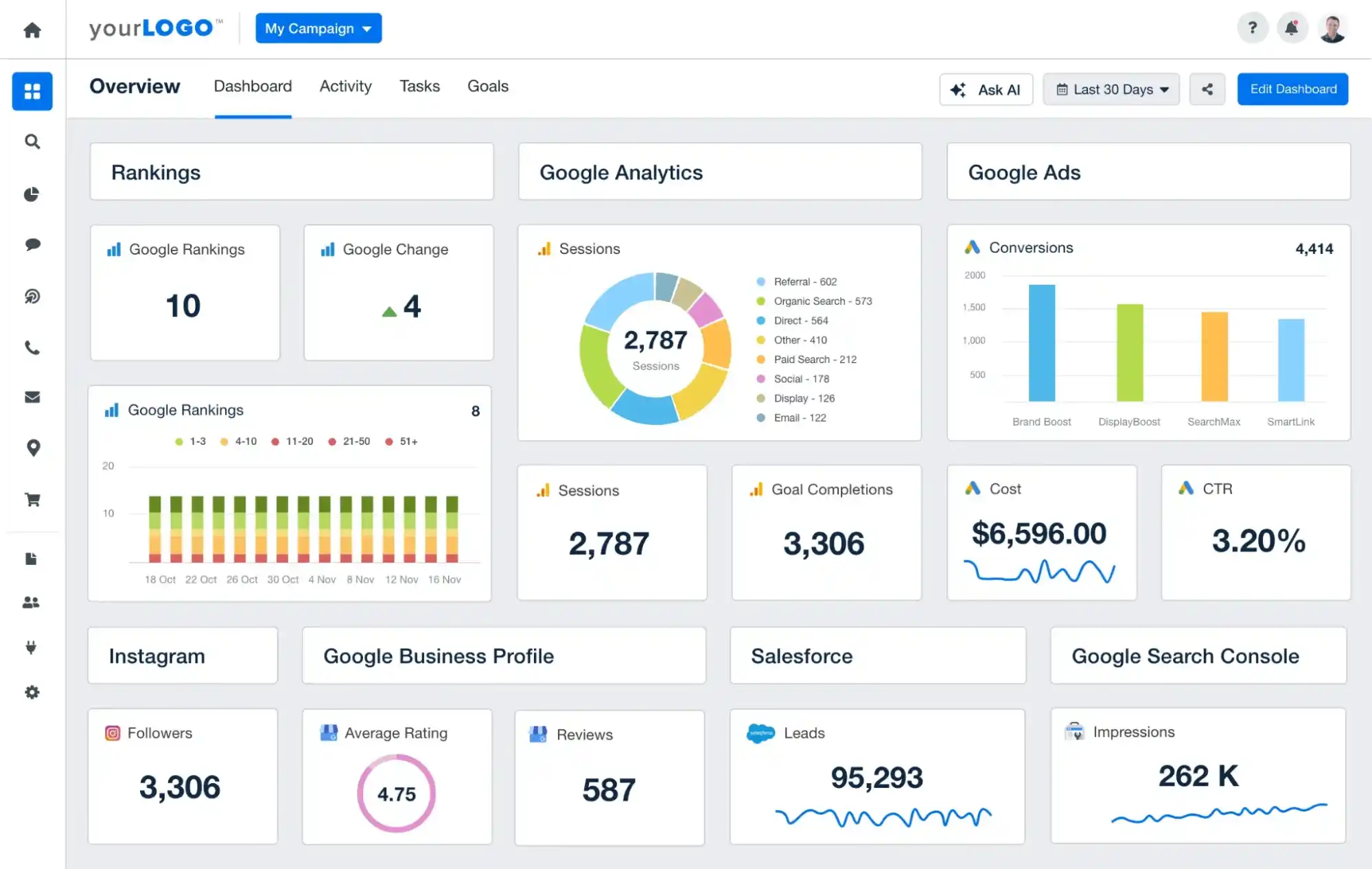
A good SEO agency is like a trusted guide. They won’t just tell you, “We got you to page one.” They’ll show you how they did it, what keywords are driving traffic, and which pages are performing best. They’ll even break down what didn’t work and why.
If an agency can’t explain its reports or relies too heavily on SEO reporting tools without customizing the data to your objectives, it’s a red flag.
Definitely, SEO isn’t one-size-fits-all, and your reports shouldn’t be, either. Be aware of agencies that “gatekeep” data, refusing to give you direct access to tools like Google Analytics.
So when you’re choosing an SEO agency, ask for sample reports, find out what SEO tools they use, and make sure they’re willing to walk you through the data every step of the way.
Confirm They Follow Google’s Best Practices
In some cases, if an agency spots that you’re not familiar with the basics of SEO, off-page SEO in particular, they might cut corners. I’ve seen it happen before. Instead of putting in the work to build real, high-quality backlinks or create original and human-friendly content that earns its place in search rankings, they might turn to black-hat SEO techniques.
What are we talking about here?
- Private Blog Networks (PBNs): At first glance, PBNs seem like a quick way to get a ton of backlinks. But let me tell you, these links are often from spammy, low-quality websites that exist only to manipulate search rankings.
- Redirect Schemes: Deceptive redirects might fool search engines for a while, but they don’t fool users or Google for long. You’ll end up with confused visitors and a red flag from search engines.
- Keyword Stuffing: This is an outdated SEO practice where a webpage is overloaded with keywords or phrases in an attempt to manipulate search engine rankings.
These tricks might work in the short term. Maybe your rankings shoot up for a few weeks or even months. You might think, “Wow, this agency is amazing!” But then, one day, Google releases an update, or a manual review flags your site, and everything crashes. I’m talking about losing your rankings, your traffic, and even the trust of your audience. Worst case? You’re completely deindexed.
So, how do you protect yourself?
You need to confirm; no, demand, that the agency follows white-hat SEO practices.
Ask them outright: “Can you walk me through your process? How do you build links? What’s your strategy for on-page optimization?” A transparent agency won’t hesitate to show you its playbook. They’ll take pride in explaining how they align with Google’s best practices.
Ask About Their Strategies for Link-Building
Backlinks are one of the core pillars of SEO. Google loves them. So, when you’re vetting an SEO agency, don’t just ask if they “do” link-building; anyone can say yes to that. Dig deeper. Ask them about their specific link-building strategies.
Will they be reaching out to high-quality PR websites? Do they have experience securing links from media outlets and reputable niche blogs? Or are they relying on those old, tired tactics like directory links and comment spam?
If they shy away from specifics or start rattling off numbers like “We’ll build 100 links a month,” pause. Quality over quantity is the mantra here.
Google loves a natural-looking backlink profile, so your SEO agency should be targeting a mix: editorial links, guest posts, resource pages, and yes, even HARO (Help A Reporter Out) opportunities. The idea is to create a balanced, organic-looking profile that doesn’t raise any algorithmic eyebrows.
Determine If They Have Experience in Your Industry
Would you hire a chef to cater your wedding if they’ve never cooked for a large crowd? Or a contractor to build your dream home if they’ve only worked on small repairs? The same logic applies to hiring an SEO agency.
Industry experience it’s an essential ingredient for success. Every industry has its challenges, audience behaviors, and competitive nuances. If your SEO agency doesn’t “speak the language” of your industry, that’s not good.
For example, healthcare SEO is not a typical eCommerce game of ranking for “best running shoes” or “fast delivery services.” Healthcare SEO comes with a unique set of challenges and opportunities. You’re dealing with strict regulations, like HIPAA compliance in the U.S., and sometimes, even legal restrictions on the language you can use. You’re targeting audiences who are often looking for immediate, accurate, and credible information.

An SEO agency with healthcare experience knows the ins and outs of the industry like the back of their hand. So, before you shake hands with an SEO agency, ask the tough questions. “Have you worked with clients from the same industry before? Can you show us results from similar clients?” The answers will tell you everything you need to know.
Look for Tailored Solutions, Not Generic Ones
Another important factor to consider is whether they provide customized strategies for your business or simply rely on generic, one-size-fits-all approaches. The tactics that work for one type of business may not be effective for another.
For instance, small businesses might need quick wins or they may have limited budgets and resources to invest. On the other hand, established brands often need to consolidate their authority, making sure they maintain their dominance.
Even within similar industries, no two businesses are the same. One company might target a younger, tech-savvy audience, while another appeals to a more traditional crowd.
Ensure They Prioritize User Experience
SEO is no longer about keyword stuffing, spammy backlinks, or gaming algorithms. Google’s mission is clear: to organize the world’s information and make it useful and accessible. The key word here? Useful. The search engine giant has evolved over the years to prioritize content that solves real problems, answers real questions, and makes people say, “Wow, this is exactly what I needed.”
If your content speaks to people: guides them, educates them, or entertains them; they stay. They click around. They trust you, Google takes notice of those positive signals and rewards you.
Google’s algorithms are smarter than ever

So, when you’re interviewing an SEO agency, listen closely. Are they talking about understanding your audience? Do they mention crafting content that solves problems, designing websites that are intuitive to navigate, or building backlinks that actually matter? If not, walk away.
Verify Their Communication Styles
During your initial discussions with an agency, ask how they handle reporting. Do they send regular updates? Are they open to scheduled check-ins? Also, dig into the tools they use for SEO project management.
Don’t forget to test the waters early!
How responsive are they when you ask questions during the proposal stage? Are their answers clear and tailored to your needs, or do they feel like copy-pasted templates?
Let me give you an example. Say you’re in month three of your SEO campaign, and the agency realizes the original keyword strategy isn’t delivering the traffic boost you were striving for. A great agency will pick up the phone (or jump on Zoom), explain the situation, and present a new plan, because that’s what pros do.
Their communication should leave you feeling informed, confident, and part of the process. They should care about your goals as much as you do, asking questions and listening, really listening to your input.
If you’re constantly left in the dark, how can you know if they’re aligning with your vision? Or worse, how do you know they’re even doing the work they promised?
When vetting an agency, ask yourself:
Do they reply to your questions promptly during initial talks?
Are they clear in explaining their methods without using jargon as a shield?
Do they make you feel heard, or are they just going through the motions?
A well-organized SEO agency has systems in place to keep everything on track. They should provide clear timelines, set realistic expectations, and hit deliverables without constant reminders.
Inquire About Their Pricing Structure
A complex pricing structure should raise a red flag because hidden SEO costs and unclear deliverables often lead to frustration down the line. What if an agency promises the moon and stars but then hits you with surprise charges halfway through the campaign?
I’m sure it doesn’t feel good. Maybe they charge extra for keyword research (wait, wasn’t that included?). Or suddenly, link-building costs appear as a “separate package.”
A clear pricing structure helps you avoid unnecessary stress, keeps the relationship transparent, and makes sure you’re never blindsided by unexpected costs.
Every agency works differently, but there are a few hallmarks of a good pricing structure:
- Transparency: Everything should be laid out: no fine print, no hidden charges.
- Customization: They should offer packages or plans customized to your specific goals and business size.
- Value for Investment: It’s not just about being cheap; affordable SEO services should deliver results proportional to what you pay.
- Clarity on Deliverables: You should know exactly what you’re getting: how many hours, what tasks, and what outcomes to expect.
A Quick Comparison
To help you evaluate, here’s a simple table comparing different pricing models:
| Pricing Model | Pros | Cons | Best For |
|---|---|---|---|
| Hourly Rates | Flexible for short-term or one-off projects. | Costs can skyrocket for ongoing work. | Small projects or specific consultations. |
| Monthly Retainers | Predictable, consistent fees for ongoing support. | May lock you into long-term contracts. | Businesses with long-term SEO goals. |
| Project-Based Pricing | Clear, upfront costs for specific tasks. | Limited to scope; unexpected needs cost extra. | Redesigns, audits, or specific campaigns. |
| Performance-Based | Pay based on results achieved (e.g., ranking boosts). | Risky; results aren’t always guaranteed. | Risk-tolerant businesses seeking quick results. |
When discussing pricing, don’t just nod along. Get specific. Ask:
- What’s included in your monthly fee?
- Are there additional charges for tools, reporting, or strategy development?
- How do you calculate SEO ROI for your services?
- What happens if results aren’t achieved within the agreed timeline?
The goal is to understand not only the costs but the value you’re getting in return. A great agency will happily walk you through its structure because they know transparency builds trust.
Confirm There Are No Long-Term Contract Requirements
Haha, this is like signing up for a gym membership, only to realize a month later you hate the workouts, and the trainer won’t stop lecturing you about carbs. Painful, right?
What I think? Long-term contracts can be a double-edged sword. On one hand, they show the agency is confident in its ability to deliver results over time. On the other hand, they limit freedom.
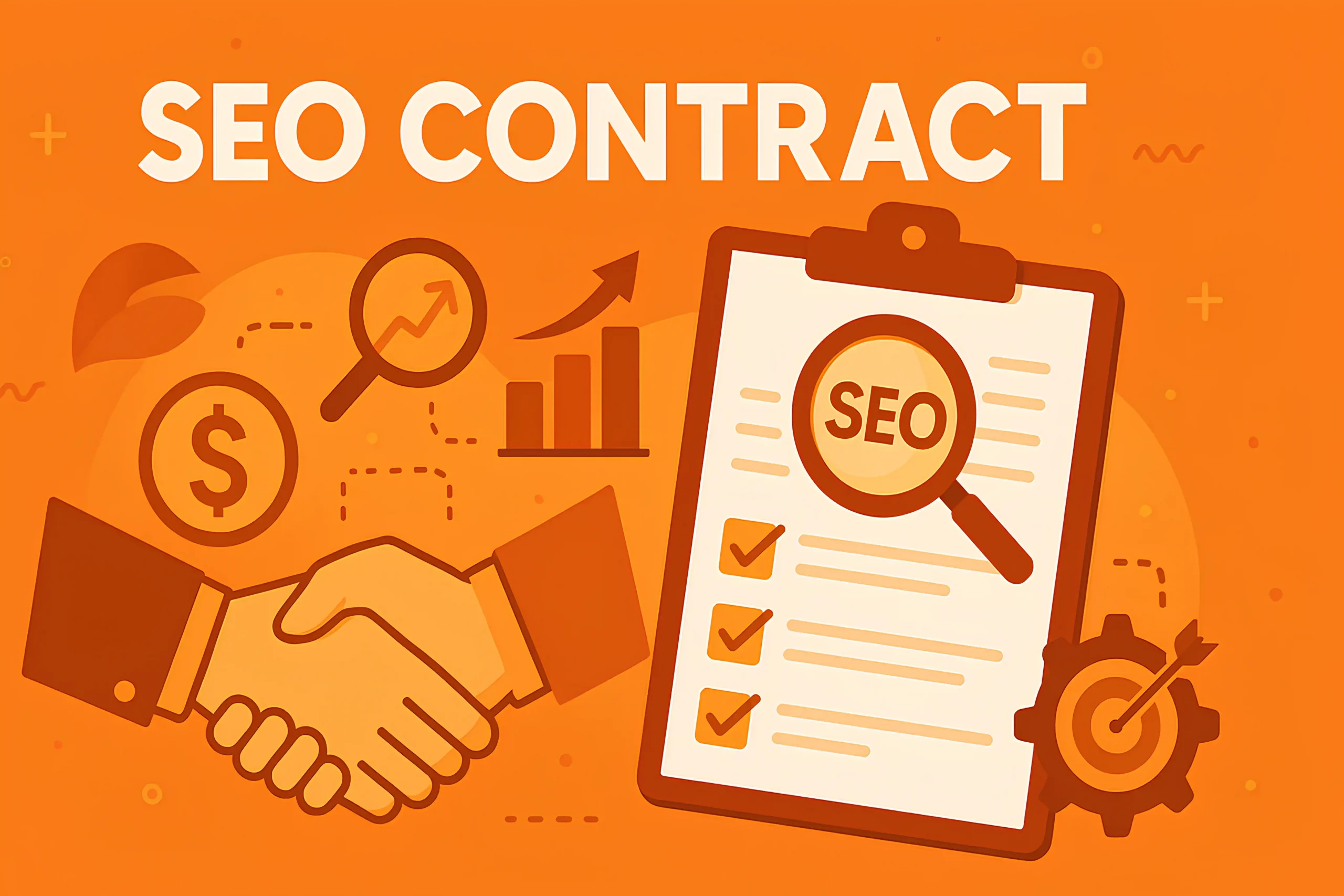
But, should you avoid long-term contracts? Not necessarily, but it depends on the terms and transparency of the contract. However, you should avoid long-term contracts that:
- Lack of flexibility: If you’re locked into a lengthy agreement without options to adjust based on performance, it’s a red flag.
- Are unclear about deliverables: Contracts without specific milestones or goals can leave you paying for undefined work.
- Offer unrealistic guarantees: Be cautious of promises like “#1 rankings in three months,” as they often signal unethical practices.
Look for agencies that offer flexible contracts or trial periods. Ask them, straight-up, how they handle client dissatisfaction. Do they provide an exit clause? Can you scale services up or down based on performance? Agencies that prioritize you and your needs, your comfort, are the ones worth considering.
You can also consider non-contract SEO services, which give you flexibility without long-term commitments. The best part is that I’ve already covered a very detailed guide on the pros and cons of this approach, so you can explore whether it’s the right fit for your business.
Ask How They Handle Google Penalties
I wouldn’t wish a Google penalty on anyone. It’s like waking up to find your house robbed, except in this case, the burglars didn’t leave a mess; they just made sure no one could find your house anymore. But, anyway! Mistakes happen. That’s why you absolutely must ask any SEO agency how they handle Google penalties and, more importantly, how they make sure you don’t end up with one in the first place.
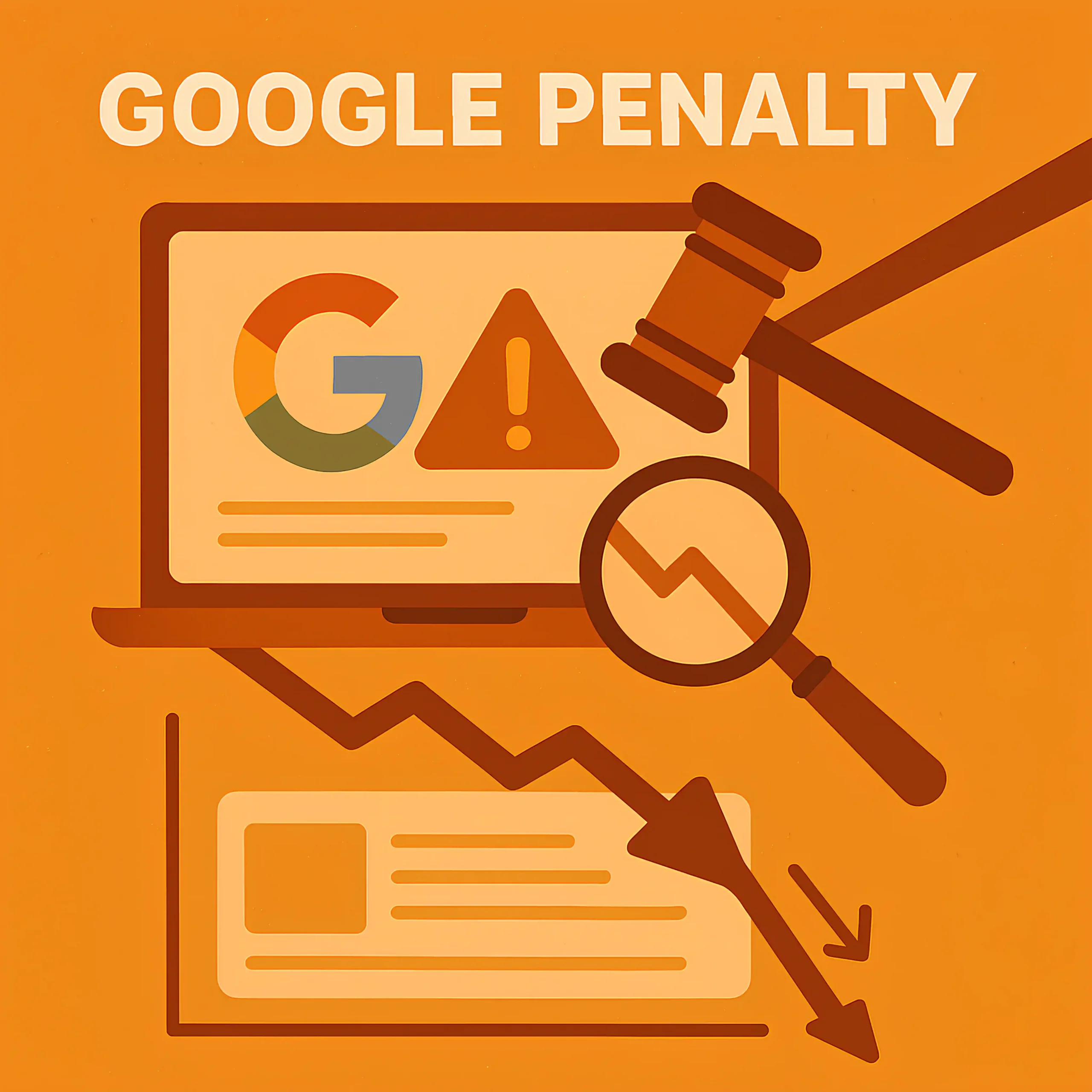
Keep in mind that Google penalties can crush years of hard work in a single day. Maybe you unknowingly bought some spammy backlinks a while back, or an outdated tactic the agency tried worked against you, either way, a penalty is a red flag telling Google to stop trusting your site. And if Google doesn’t trust you, neither will your audience.
The SEO agency must make sure your website stays compliant with Google’s ever-changing guidelines. More than that, they’ll have a game plan, a roadmap to recovery in case the worst happens.
Trust me, you want an agency that’s been through the battlefield before. Someone who knows how to spot trouble, how to fix it, and how to make sure it doesn’t happen again.
Also, inquire about their technical SEO expertise. Sometimes penalties aren’t about bad tactics but technical errors: duplicate content, slow site speeds, or accidentally blocking crawlers in your robots.txt file.
Look for Any Guarantees They Offer
If an SEO agency confidently promises you the #1 spot on Google in a matter of weeks, run; don’t walk away. SEO doesn’t come with guarantees. Any reputable agency will tell you that upfront, because no one, not even the most skilled SEO consultant, can control Google’s algorithm or dictate how quickly results will appear.
So, smart clients don’t ask for guaranteed rankings, but you can expect guarantees in the process and quality of work, and those, my friend, are entirely reasonable.
So, when you’re assessing an agency, don’t focus on guarantees that sound too good to be true. Instead, ask what they can commit to in terms of their process, transparency, and ethical approach.
Hiring an SEO Agency: Hourly vs. Retainer-Based
One of the first questions businesses ask when hiring an SEO agency is whether it makes more sense to pay hourly or commit to a monthly SEO retainer. In my opinion, both models are common, but they serve very different needs.
Hourly SEO tends to work best for short-term projects, SEO audits, or highly specific fixes. If you just need someone to clean up technical errors, optimize a set of pages, or provide consulting on a migration, paying by the hour might be a practical choice.
According to industry surveys, hourly SEO rates typically range between $75 to $150 an hour, with some enterprise-level consultants charging upwards of $300 per hour for specialized work.
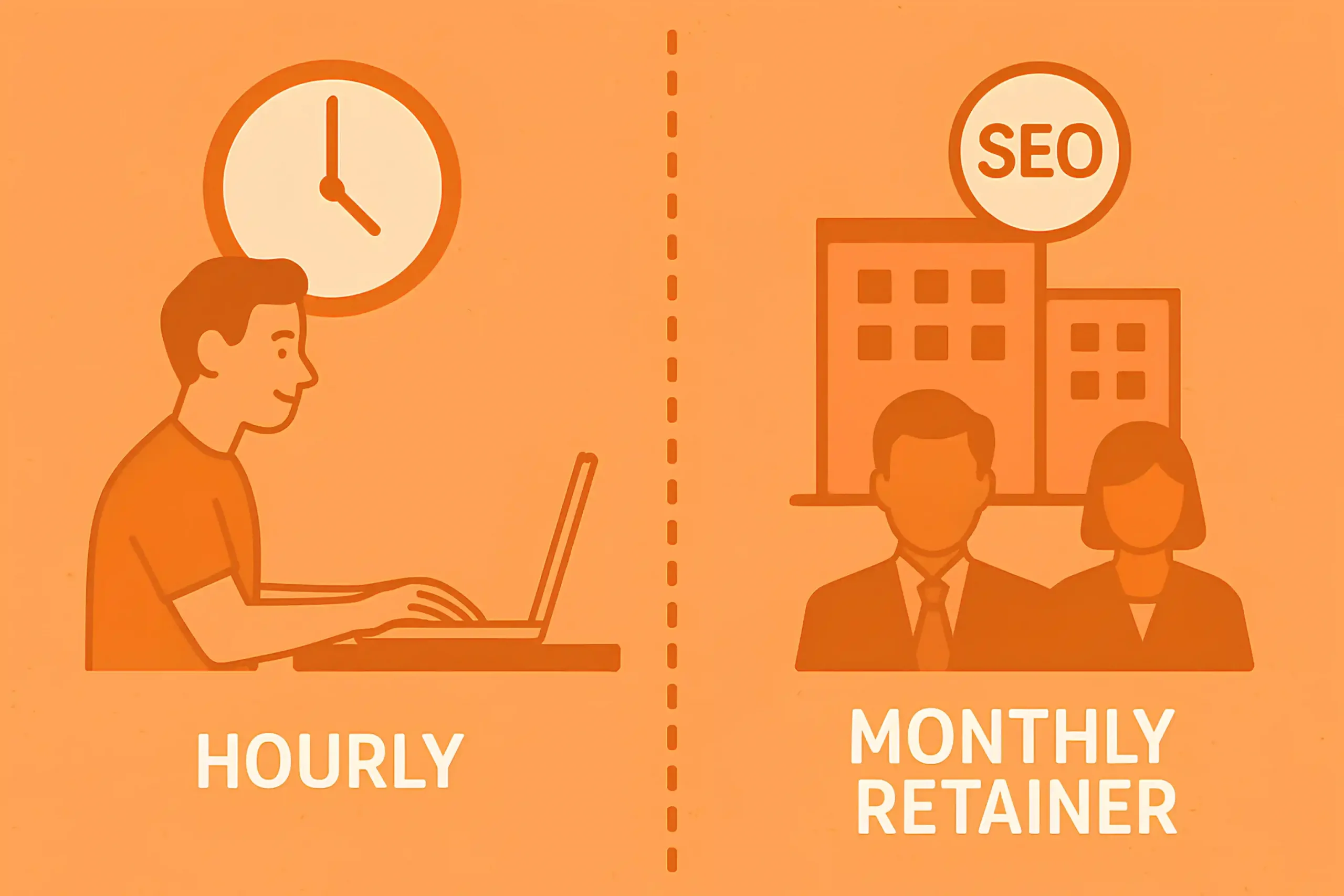
The retainer model, on the other hand, dominates the industry because SEO is rarely a one-off task. Roughly 75% of SEO agencies offer retainer-based services, with the average monthly cost falling between $1,500 and $5,000 depending on scope and market.
A retainer ensures continuity, accountability, and a strategy that evolves with your business. It also gives the agency freedom to allocate hours flexibly; some months focusing more on content, other months on link-building or technical improvements, without renegotiating every task.
I believe the best practice is to align the pricing model with your actual goals. If you’re experimenting, need an SEO audit, or want a quick consultation, hourly billing keeps things simple and low commitment.
But if your aim is long-term growth, consistent rankings, and a reliable partner, a retainer is almost always the smarter investment. Client retention data across the industry shows that businesses on retainers see more consistent performance gains because they give SEO the time it requires, usually 6 to 12 months, to show meaningful impact.
DIY SEO vs. Hiring an Agency
Sometimes, taking matters into your own hands feels rewarding. Like assembling furniture without reading the instructions or cooking a new recipe from scratch; you learn as you go, and there’s pride in that.
But when it comes to SEO, it’s not always that simple. Sure, doing it yourself might seem cost-effective, even fun at first. But as the rankings don’t budge or worse, your site traffic drops, you start to wonder: “Am I missing something here?”
Hiring an agency, on the other hand, feels like calling in reinforcements. The pros who’ve seen it all. But, there’s that inner voice questioning if it’s worth the investment or if they’ll deliver what they promise.
This is where it gets real; DIY SEO vs. hiring an agency. What works better? Let’s break it down.
| Aspect | DIY SEO | Hiring an Agency | Which is Better? |
|---|---|---|---|
| Cost | Lower upfront cost but can add up with tools, courses, and time investment. | Higher upfront cost but typically includes tools, expertise, and results-oriented strategies. | Depends on your budget and willingness to invest. |
| Expertise | Limited by your knowledge and time to learn. | Access to specialized skills and years of experience. | Agency, if expertise matters to your goals. |
| Time Investment | Time-intensive, especially for beginners. | Minimal time required from your end - agencies handle the heavy lifting. | Agency saves your time for other priorities. |
| Results | Slow and often uncertain - trial and error is common. | Targeted strategies with measurable outcomes. | Agency delivers faster, reliable results. |
Should I Keep SEO In-House?
Deciding whether to manage SEO in-house or bring in outside expertise is a question nearly every growing business faces. Keeping SEO in-house has clear advantages; you have someone who’s fully embedded in your brand, understands your products and services at a deeper level, and is always available for quick adjustments.
For larger companies with the budget to hire a full SEO team, this can work well. However, SEO is a broad discipline that touches technical site health, content strategy, link acquisition, analytics, and more. It’s rare for one person to cover all of that effectively, and building a team internally is often far more expensive than it looks on paper.
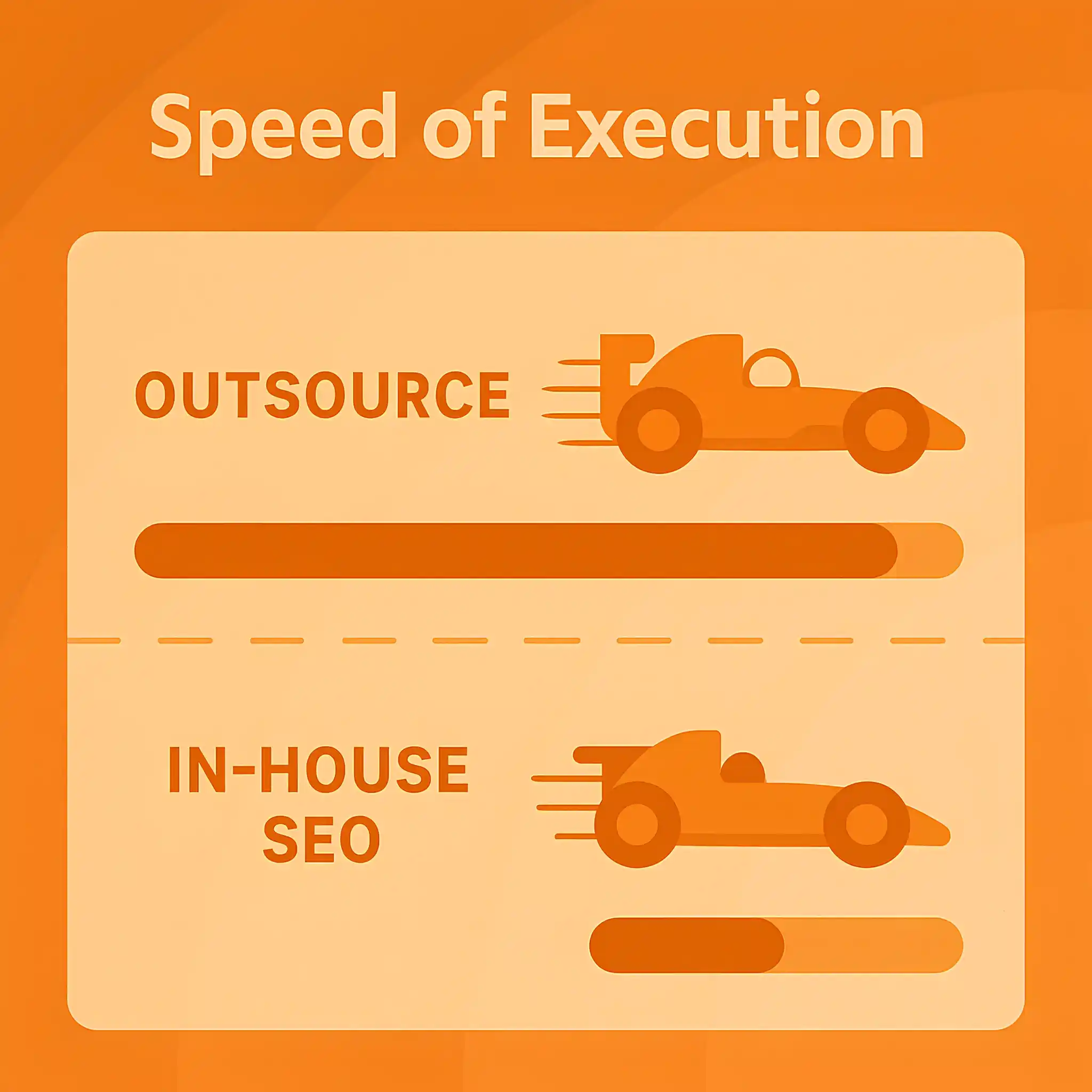
On the other hand, an agency or specialized consultant brings not just one skill set, but an entire toolkit. They’ve seen hundreds of websites across different industries, so they can usually diagnose issues and find opportunities faster than an in-house generalist.
Outsourcing SEO also gives you access to premium tools and processes without having to carry the costs yourself. The downside, of course, is that an external partner won’t have the same immediate, day-to-day visibility into your business.
That’s why the most successful partnerships happen when companies share clear data, goals, and feedback regularly, so the outsourced team can act almost like an extension of the in-house staff.
There’s also a middle path: working with a fractional SEO consultant. Instead of a full agency retainer or a full-time hire, you bring in a senior SEO expert for a set number of hours or projects each month.
I think, this approach can be especially valuable for startups and mid-sized businesses that don’t need a full-time SEO department but still want someone highly experienced guiding their strategy.
It balances cost efficiency with high-level direction and is a model that’s becoming increasingly popular in competitive industries.
Is Hiring an SEO Company Worth It?
Absolutely! Hiring an SEO agency can be one of the best investments for your business if you choose a reliable partner. They can handle everything from keyword research and content creation to technical audits and link-building campaigns.
An experienced SEO agency brings dedicated specialists who stay updated with the latest search engine algorithm changes, making sure your website remains optimized and competitive.







